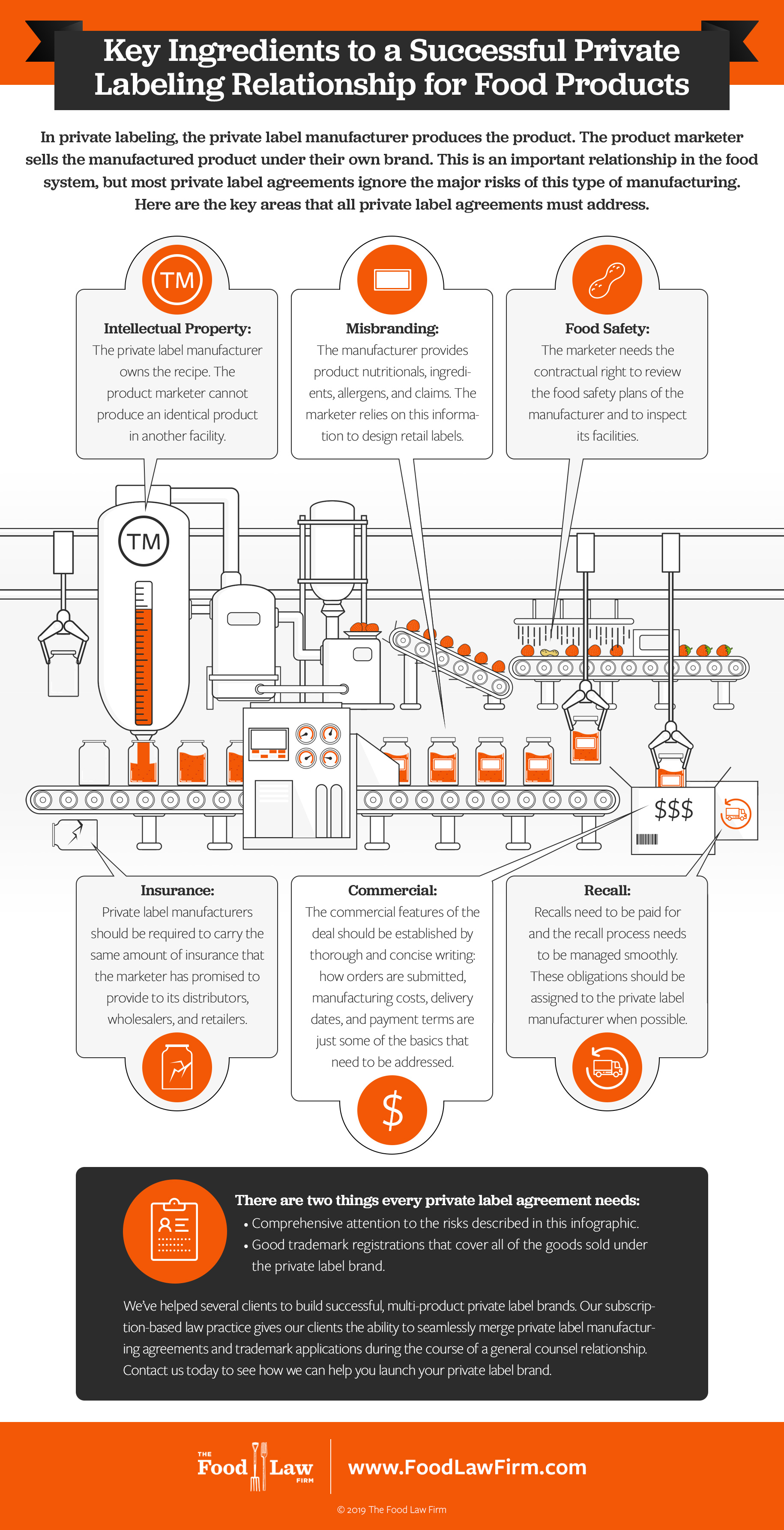Private label manufacturing is an incredibly fast way to build a multi-product brand without investing in facilities or even recipes and product development. We’ve helped dozens of companies to create multi-product brands virtually overnight. We can tell you with certainty how we can contribute to your success.
Before we begin the discourse, a few words on nomenclature. In private labeling, the private label manufacturer produces the product. The product marketer sells the manufactured product under their own brand. Private labeling is an important relationship in the food system, but most private label marketers ignore the major risks of this type of business.
At a minimum, our firm makes two contributions to a strong private label brand:
- We draft a template manufacturing agreement used by the product marketer with all manufacturers.
- We develop a trademark portfolio that covers all of the goods being produced under the brand.
The Private Label Agreement Template
We’ve covered the basics of private label agreements on our services page and in our nifty Key Ingredients to a Successful Private Labeling infographic (see below) . These are great resources for single-product private label arrangements. The basic risks addressed on these resources are also applicable to multi-product brands, but we re-organize our private label agreement template a little bit to make the brand easier for the marketer to manage.
Or multi product brands, we advise clients to split the template private label agreement into two pieces. One portion of the agreement will be common to all manufacturers. A second portion of the template will describe the variables that are unique to each manufacturer.
Some terms of manufacturing will be the same whether the marketer is manufacturing breakfast cereal, dried pasta, or whatever. Therefore, Part 1 of the template contains the non-negotiable items that all manufacturers will have to agree to. For example, all manufacturers will be required to:
- Agree to the same basic nature of the intellectual property licensing relationship between the parties.
- Carry the same amount of liability insurance.
- Ship finished products to the same warehouse, distribution center, or 3LP as designated by the marketer.
- Grant the marketer access to food safety records.
- Assume the same recall expense and management obligation.
In Part 2 of the template, we include the terms that will be different with every private label manufacturer.
- Manufacturing costs.
- Production schedules.
- Lead times for the submission of purchase orders.
Our goal is to make this administratively simple for the marketer. Our clients need to require consistent obligations from all manufacturers, but the development team that signs-up new manufacturers needs the flexibility to make deals on variables like price and lead time. Our priority is to protect your risk, but we are always aware that we cannot stand in the way of the deal. Our agreement is built in two parts because it will help you to close.
Click here to read part 2: Trademark Portfolio Management for Private Label Brands


















